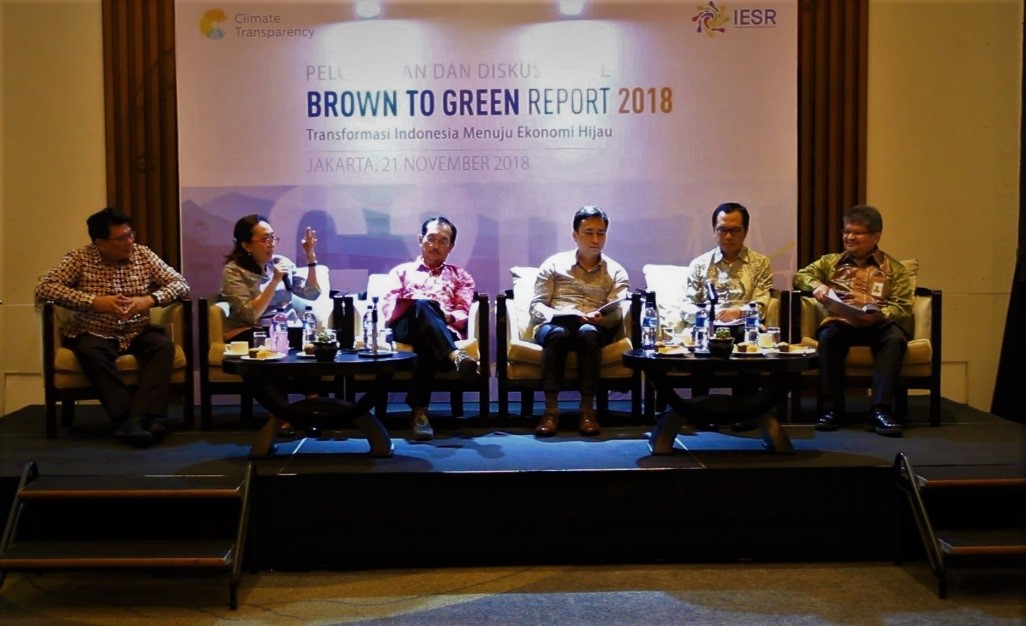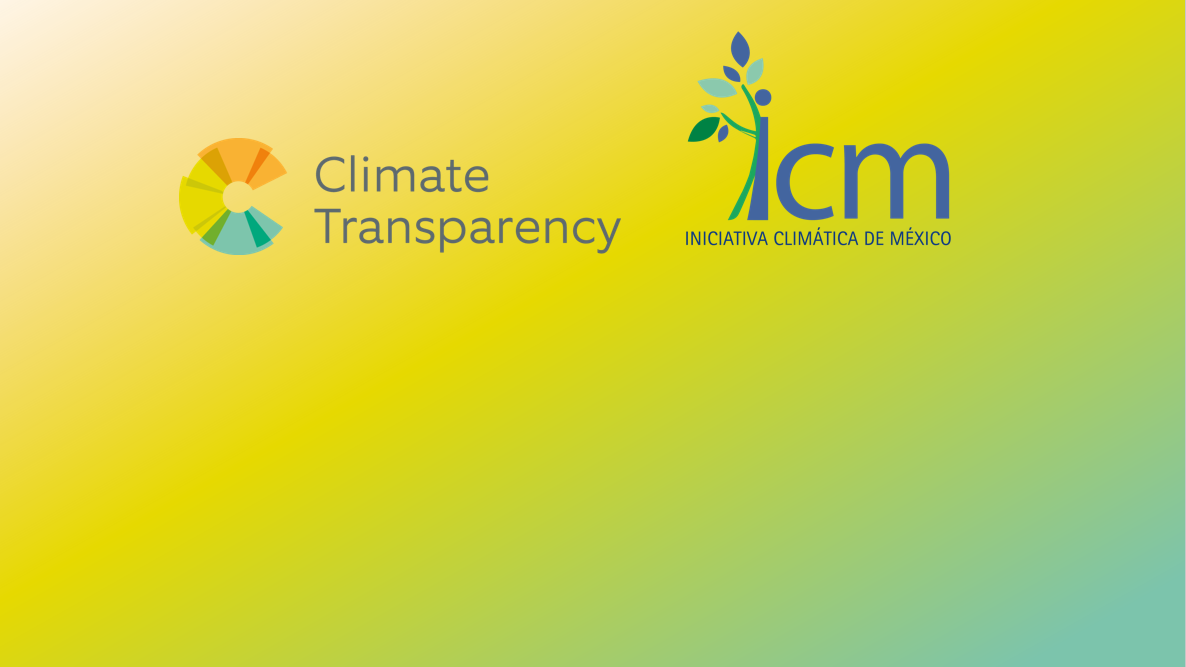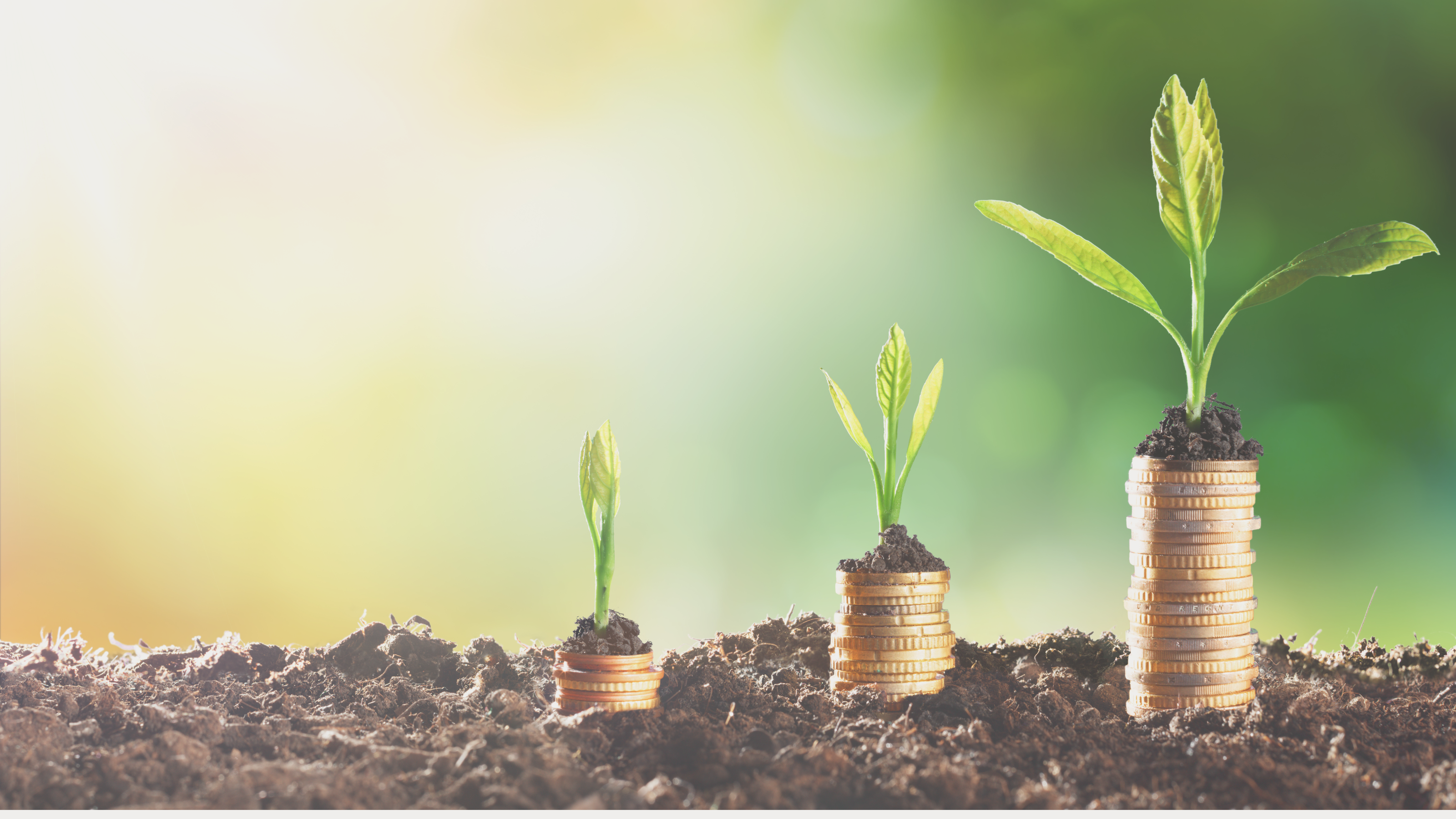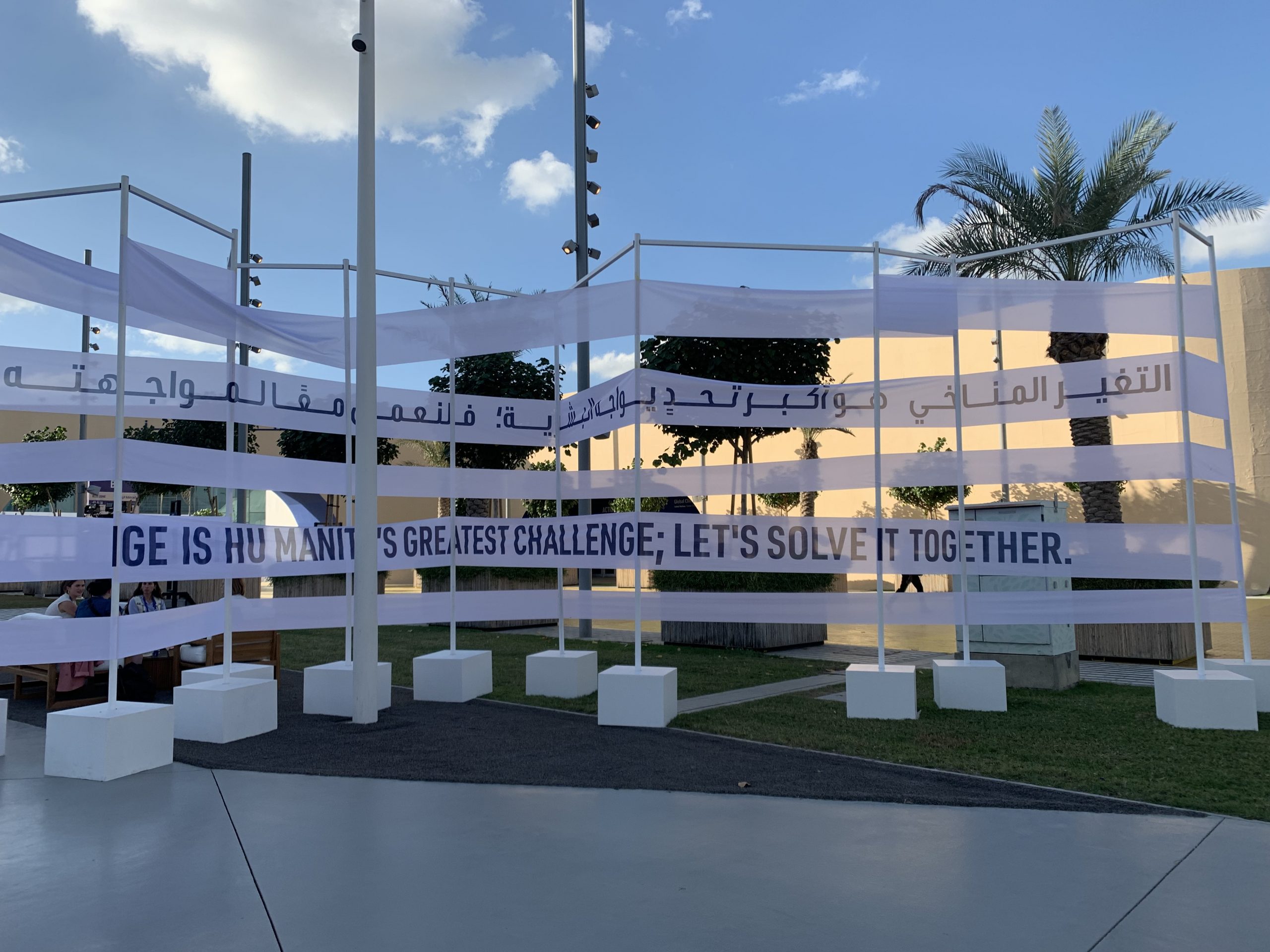Climate change has caused enormous damage to humans and ecosystems. The damage is irreversible, and if it can be repaired, it would take a very long time. Developed and developing countries, such as the G20 have a significant responsibility and role to overcome the impacts of climate change. All must work together and coordinate with each other.
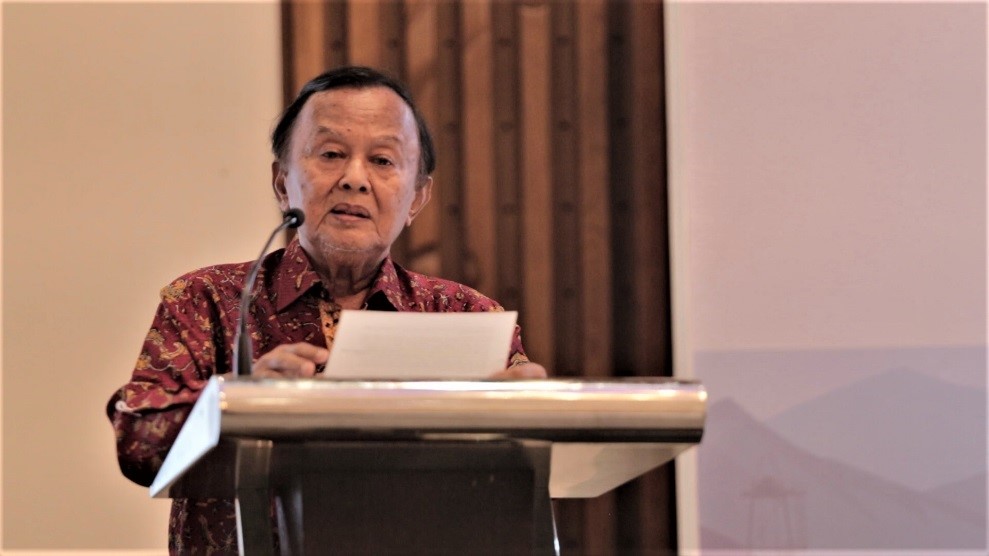
Prof. Ir. Rachmat Witoelar, Special Envoy of the President of the Republic of Indonesia for Climate Change, opening the event
Prof. Ir. Rachmat Witoelar, Special Envoy of the President of the Republic of Indonesia for climate change, delivered his opening remarks on the launching of the Brown to Green Report 2018 organized by the Institute for Essential Services Reform (IESR) in Jakarta, November 21, 2018. The event was attended by 80 participants representing government institutions, businesses, academics, media and NGOs.
Indonesia led by President Jokowi, said Rachmat, has a commitment to work towards achieving the Paris Agreement target. However,
the biggest challenge is how to establish a governance structure and implement climate change policies, especially related to the development of the renewable energy sector.
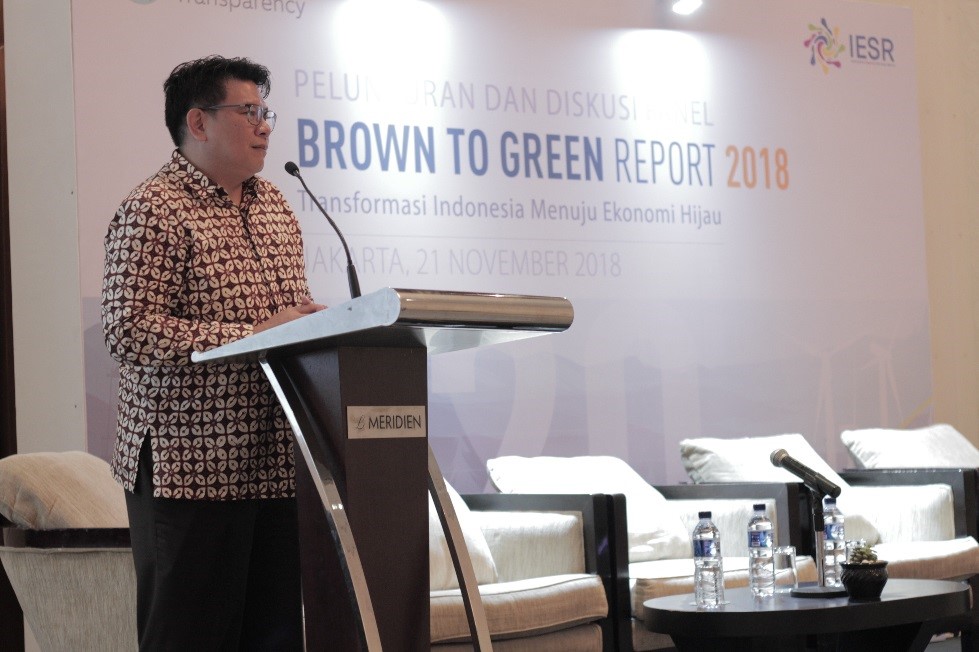
Fabby Tumiwa, Executive Director of IESR, opening the launch of Brown to Green Report 2018 in Jakarta
In his presentation, Fabby Tumiwa, Executive Director of IESR said that the Brown to Green Report 2018 is one of the important reports that can be utilized as a reference for policy makers in Indonesia to fulfill the country’s commitment under the Paris Agreement. As the report provides a comprehensive assessment of the G20 countries’ and Indonesia’s performance towards a low carbon economy. Using around 80 indicators the report gives detailed information about the gaps and current developments of emissions, decarbonization, climate policy and financing of the transition.
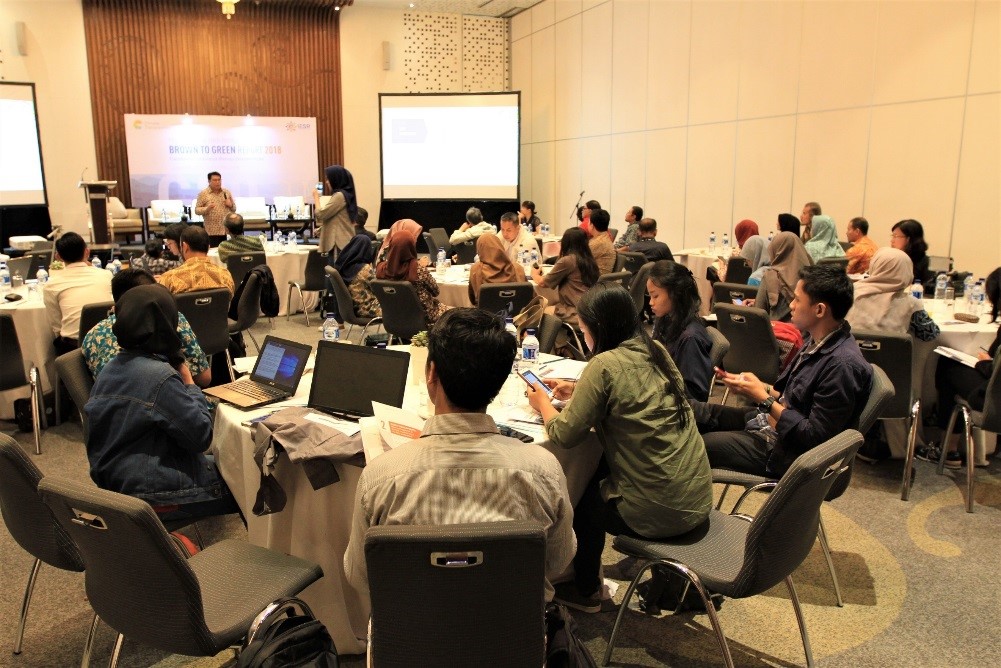
Fabby Tumiwa, Executive Director of IESR, presenting the key findings of Brown to Green Report 2018
“The 2018 report shows a declining performance of G20 countries, especially of emissions reduction in the energy and transport sectors. The energy-related CO2 emissions are increasing and most of the energy supply for the G20 countries still mostly comes from fossil fuels. Subsidy for fossil fuel power projects increases significantly.” said Fabby.
However, he added, there are improved developments that need to be noted, such as fiscal policies and finance instruments to support mitigation and a transition to a green economy, including generating more public revenues through explicit carbon pricing, introducing carbon tax and opening the discussion for the just transition.
In general, Indonesia’s performance is still low indicated by an increase in emissions especially in the energy sector. Indonesia’s state-owned power utility plans to increase the use of coal for power generation and the allocation for coal subsidies have increased. Carbon intensity in the energy sector reaches 4%. This figure is high compared to the G20 average (less than 1%). Indonesia has not developed any plans for a coal phase-out yet.
One of Indonesia’s achievement this year is that emissions in the forest sector are declining. Deforestation rates dropped by 60% between 2016 and 2017, due to a 2016 peat drainage moratorium. However, its deforestation policies are still not 1.5°C compatible missing a national target for reaching zero deforestation by 2020s.
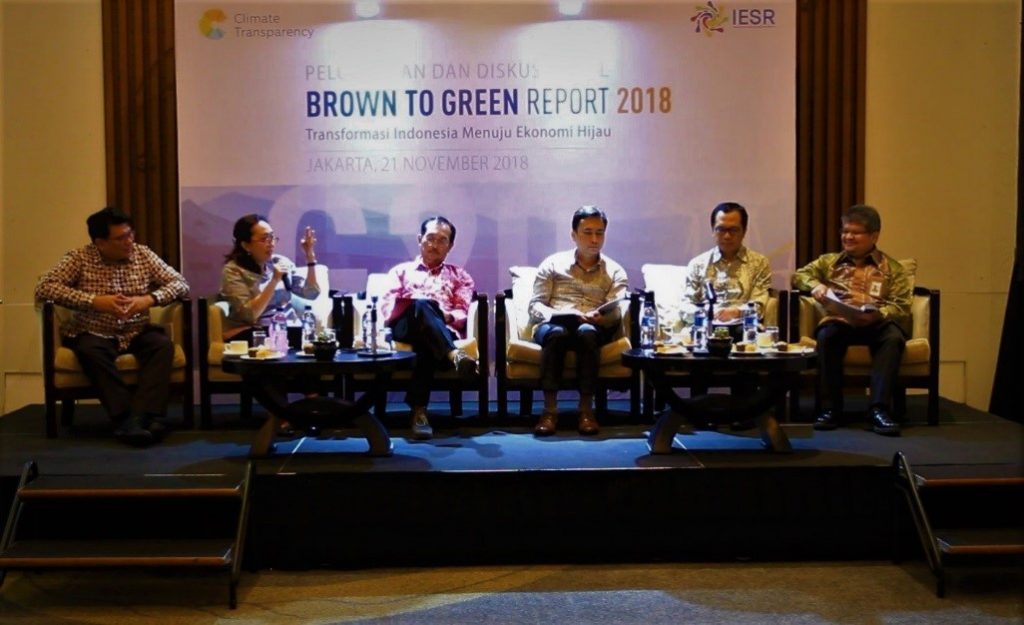
Panel Discussion Indonesia Transformation towards low carbon economy. Left to the right: Fabby Tumiwa (IESR), Benhur P.L Tobing (Ministry of Energy and Mineral Resources, Budi Santosa (Indonesia Business Council for Sustainable Development), Dudi Ruliandi (Fiscal Policy Agency/Ministry of Finance, Dida Gardera, Coordinating Ministry for Economic Affairs.
The presentation of the report’s findings was followed by a panel discussion with speakers such as Benhur P.L. Tobing, the head of sub-directorate for Environmental Protection of Electricity, Ministry of Energy and Mineral Resources, Dida Gardera, Assistant Deputy Minister for Environmental Conservation, Coordinating Ministry for Economic Affairs, Budi Santosa, Executive Director of the Indonesia Business Council for Sustainable Development, Dudi Ruliandi, Head of the Sub-Sector for Funding Cooperation of International Institutions and Partner Countries, Fiscal Policy Agency, Ministry of Finance.
Dida Gardera appreciated that IESR launched the Brown to Green Report in Indonesia as it provides a reference framework and places some pressure towards the government to improve its performance in achieving the Paris Agreement targets. Moreover, this report provides an objective overview to all G20 countries. Regarding the carbon policy, his ministry has been opening some discussions with several stakeholders to consider the implementation of a carbon tax mechanism.
Budi Santosa explained, sustainable business in Indonesia is still a big challenge, especially dealing with market demand. An adequate regulation is needed to encourage the private sector to implement sustainable business and support a low-carbon economy. Raising awareness and public education is needed to promote a low-carbon lifestyle.

